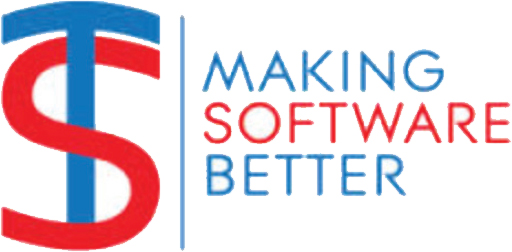Improving Software for Society
Education and Training
Most members of the IAP are already established in their professional careers, and have completed their initial education and training. But the IT industry is a rapidly changing one. Members will need to be continually updating and expanding their skills if they are to keep abreast of the job market’s needs. The Institution can help with this.
IAP Partners — The Institution has Partner agreements with a number of the leading universities and private sector colleges. These are bodies that offer courses in analysis, programming and related subjects most suited to the special needs of IAP members.
Accredited Courses — Accredited courses (offered by the Partners) have been scored on the IAP points system, and contribute towards the totals needed for IAP membership or upgrading. Many IAP Partner Organisations are involved in education and training. Their courses are evaluated under the IAP points system (described in Membership Qualifications page for IAP Membership). This means that their students and trainees can be aware of the contribution made towards IAP membership by each course before they undertake it.
Student Placements — Licentiate members of the IAP still in full time education can take advantage of a unique scheme that provides the essential working experience to complement their courses.
Other Educational Matters — email the Executive Director for Professionalism and Education.
COURSES
Arts and business studies graduates are recruited as business analysts and sales support staff, where business understanding is essential. Courses that combine computing with skills such as business studies or languages can be useful.
For the more technical careers, like applications programming, systems programming and software engineering, there are various degree courses in computing and IT. Some are hardware or engineering oriented, others have a software, programming and applications emphasis. Specific entry requirements vary considerably, depending on the focus of the course. For example, a very theoretical course may require A level mathematics, whereas Business IT programmes would probably not ask for any science background beyond GCSE. Few courses specify A level Computing or equivalent.
Many universities run ‘conversion’ MSc courses for graduates, who, having completed degree courses in non-IT related disciplines, subsequently decide that they would like to pursue an IT-based career. For many companies, people with high level skills in two areas, one of them IT, are particularly attractive employees. It is important to remember that IT is very largely a service industry, in that the focus of the business is on oil exploration or chemical engineering or pharmaceuticals or banking or whatever, and that IT is simply one of the tools the business uses to achieve its ends. So an oil exploration firm might look for applicants who understand both geology and IT.
There are other routes into an IT career, some of which parallel the degree path and some of which precede it:
National Vocational Qualifications (NVQs) from levels 1 to 4 are available in areas from Operating Information Technology to Information Systems Development. These are primarily work-based qualifications.
BTEC First Diploma Information Technology Practitioners courses offers a basic introduction to the use of computers.
BTEC National Diploma Information Technology Practitioners courses (usually two years, full-time) need four GCSEs grade C, preferably including English and mathematics. The National Certificate is a part-time equivalent course.
BTEC Higher National Diploma courses in computer studies, computer science, information systems, etc. are offered at many universities and colleges. HND courses usually call for one A level pass, plus another subject studied to that level, or a relevant National Diploma. Many universities allow successful HND students to move directly into the second year of a degree programme.
Employer-based training, or perhaps a modern Apprenticeship, may be a possibility in your area. Your local careers service will be able to advise you.
STUDENT PLACEMENTS
Many university and college IT courses include an industrial placement, where students work within a company for perhaps 30 to 48 weeks as part of their course. The IAP believes that such schemes provide students with invaluable real-world experience and actively encourages them. To that end, we maintain two data sets. The first contains details of Licentiates of the IAP who require placements. The second relates to companies who are prepared to offer such placements on a regular basis.
Licentiates can email admin@iap.org.uk, for the attention of the Executive Director for Professionalism and Education with your membership number, CV, when and where they are looking for placements and any other relevant information. This data is stored and an abstract of current requests is published regularly.
Members who wish to offer an applicant a placement can signal their interest, again by emailing admin@iap.org.uk the Executive Director for Professionalism and Education. Information is passed to the student, whose responsibility it then is to make contact.
To join the IAP please complete the Application Form: join-the-iap.








